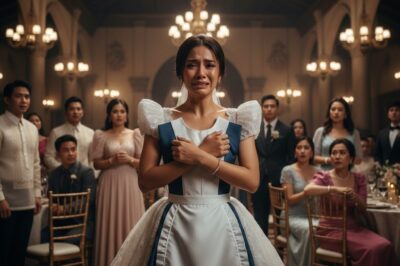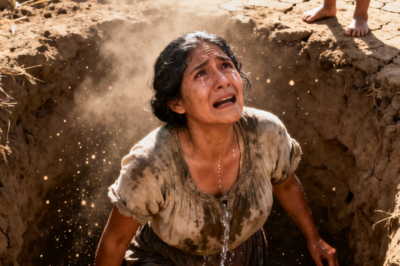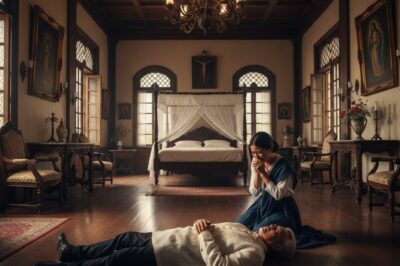World cinema has lost an acting legend. Yesterday, the passing of the Philippines’ Superstar – a multi-hyphenate performer across film, television, radio, theater – was announced by her family. With a career that spans six decades, 180 films, 260 singles, multiple genres, and hundreds of awards, Nora Aunor’s impact as an artist transcends the boundaries of Philippine cinema. Her longevity is not only astounding in quantity – she starred in 18 films in 1970 alone! – but she has been a central figure in some of the best works Philippine cinema has ever created.
Personally, Aunor is my favorite Filipino actor – male or female – of all-time. Her talent puts her up there with the world’s best like Meryl Streep, Isabelle Huppert, Liv Ullmann, Gong Li, Viola Davis, Sophia Loren, Setsuko Hara, and Fernanda Montenegro. If this is the first time you are reading about this thespian, trust me on this one: she’s up there with the best of the best…
She has brought an intensity that is remarkably hers, with expressive eyes that heightens any dramatic moment in an instant. Her gravitas is in full force every time, absorbing the audience with even the smallest of nuance to the biggest outbursts. And her physicality moprhs with every character: she can be in a room filled with people taller than her, and yet she would still catch your attention with her attentiveness and dramatic force. You feel her commitment and command every time she is on screen. We have not even mentioned her “Golden Voice” yet; while she expertly deploys it when acting, her singing voice has single-handedly propelled her from an humble provincial lass to an unstoppable cultural icon unlike any other.
This petite morena (brown-skinned woman) redefined what a leading lady in cinema looked like. This is especially significant at a time when her contemporaries and the ones that came before her were almost exclusively statuesque mestizas (fair-skinned women), a remnant of the centuries-long colonial past that declared natives as inherently inferior, physically and otherwise. Aunor has shown that women (and men) who look like her – the majority of Filipinos, mind you – can headline films, TV shows, concerts, and theater plays without adhering to the colonial standards of beauty. She even established her own production company as proof of her pursuit of telling stories that center people like her.
Before she was the Superstar, she had humble beginnings from Southern Luzon.
Her ascent to stardom also coincided with the Second Golden Age of Philippine Cinema (1970s to 1980s), a time of socio-political turbulence driven by the dictatorship of Ferdinand Marcos Sr. This era in filmmaking resulted with the masters of cinema creating some of the most vital and subversive works the country has seen during the time of heavy censorship and political upheaval. During this time, Aunor worked with cinematic giants like Lino Brocka, Ishmael Bernal, Mario O’Hara, and Gerardo de Leon, to name a few. Her politics later in life are questionable at best, but her work particularly during the 1970s and the 1980s advanced pressing issues and broke stereotypes in the process of discussing them.
And with that, we honor this barrier-breaking woman by mentioning some of her career-defining work as an actress. This is a list of films – in chronological order – that have available restored/remastered versions and with English subtitles, in order for non-Filipinos to also experience Nora Aunor’s brilliance that made her one of the best we ever had and ever will be.
Nora Aunor’s car is now being claimed by Ian de Leon, while Lotlot protests. Slowly, some of the properties and wealth once acquired by the superstar Nora Aunor are being taken, which is one of the reasons why the issue remains unresolved even now. The car that Nora Aunor used to drive is now the subject of controversy. According to people close to the family, it appears that the vehicle now belongs to Ian, as he is the one currently using it. Official documents also reportedly show that the car is now registered under Ian de Leon’s name.
Lotlot, Matet, and Nora’s two adopted children are said to be unable to do anything about it, as they acknowledge that Ian is the only biological child of Nora Aunor and, therefore, the one with the most legal rights.
News
Sa kasal ng aking anak na babae, iniabot ng kanyang biyenan ang isang kahon ng regalo. Nang buksan iyon ng aking anak, isang uniporme ng kasambahay ang laman. Ngumiti ang aking manugang at nagbiro: “Eksakto lang—iyan ang kakailanganin mo sa bahay.”/th
Sa kasal ng aking anak na babae, iniabot ng kanyang biyenan ang isang kahon ng regalo. Nang buksan iyon ng…
“Nang itulak ko ang pinto at pumasok, natuklasan kong ang maliit na sekretarya ng asawa ko ay gumagapang sa ilalim ng mesa.”/th
Binuksan ko ang pinto ng opisina at agad kong nakita— si Bianca Santos, ang intern secretary ni Marco De La…
Ang biyuda ay bumili ng isang lumang lupain na ayaw ng lahat… ngunit habang naghuhukay para magtanim ng mais, isang lihim ang kanyang natuklasan/th
Nang bumaba si Teresa mula sa trak at marinig ang pagkaluskos ng tuyong lupa sa ilalim ng kanyang mga tsinelas,…
“NAG GIYANG-PATAY AKO PARA SUBUKIN ANG KATAPATAN NG AKING MAHIYAIN NA KASAMBAHAY — PERO ANG NADISKUBRE KO… AY MAS MALALIM PA KAYSA KAYANG TIISIN NG PUSO KO.”/th
Ang pangalan ko ay Alejandro Reyes, 41 taong gulang.CEO.Mayaman. Hinahangaan ako ng lahat—maliban sa isang tao: Si Lina, ang pinakamahiyain…
Nakakuha ng $33M na Business Deal ang Asawa Ko at Pinalayas Niya Ako — Pagkaraan ng 3 Araw, Nanlambot Siya Nang Makita Kung Sino ang Lumagda/th
v Ang gabing sinabi ng asawa ko na kailangan kong umalis sa aming bahay, suot pa rin niya ang suit…
Habang wala akong malay sa silid-panganganak, sinabi ng biyenan ko: “Kung babae, pabayaan mo na.” Sumagot ang asawa ko: “Napirmahan ko na ang mga papeles.”/th
Habang wala akong malay sa silid-panganganak, sinabi ng biyenan ko: “Kung babae, pabayaan mo na.”Sumagot ang asawa ko: “Napirmahan ko…
End of content
No more pages to load












